第62章 FROM THE MERRIMACK TO THE MISSISSIPPI(3)
The missionary spirit was strong among my companions.I never thought that I had the right qualifications for that work;but Ihad a desire to see the prairies and the great rivers of the West,and to get a taste of free,primitive life among pioneers.
Before the year 1845,several of my friends had emigrated as teachers or missionaries.One of the editors of the "Operatives'
Magazine"had gone to Arkansas with a mill-girl who had worked beside her among the looms.They were at an Indian mission--to the Cherokees and Choctaws.I seemed to breathe the air of that far Southwest,in a spray of yellow jessamine which one of those friends sent me,pressed in a letter.People wrote very long letters then,in those days of twenty-five cent postage.
Rachel,at whose house our German class had been accustomed to meet,had also left her work,and had gone to western Virginia to take charge of a school.She wrote alluring letters to us about the scenery there;it was in the neighborhood of the Natural Bridge.
My friend Angeline,with whom I used to read "Paradise Lost,"went to Ohio as a teacher,and returned the following year,for a very brief visit,however,--and with a husband.Another acquaintance was in Wisconsin,teaching a pioneer school.Eliza,my intimate companion,was about to be married to a clergyman.
She,too,eventually settled at the West.
The event which brought most change into my own life was the marriage of my sister Emilie.It involved the breaking up of our own little family,of which she had really been the "houseband,"the return of my mother to my sisters at Beverly,and my going to board among strangers,as other girls did.I found excellent quarters and kind friends,but the home-life was ended.
My sister's husband was a grammar school master in the city,and their cottage,a mile or more out,among the open fields,was my frequent refuge from homesickness and the general clatter.Our partial separation showed me how much I had depended upon my sister.I had really let her do most of my thinking for me.
Henceforth I was to trust to my own resources.I was no longer the "little sister"who could ask what to do,and do as she was told.It often brought me a feeling of dismay to find that I must make up my own mind about things small and great.And yet I was naturally self-reliant.I am not sure but self-reliance and dependence really belong together.They do seem to meet in the same character,like other extremes.
The health of Emilie's husband failing,after a year or two,it was evident that be must change his employment and his residence.
He decided to go with his brother to Illinois and settle upon a prairie farm.Of course his wife and baby boy must go too,and with the announcement of this decision came an invitation to me to accompany them.I had no difficulty as to my response.It was just what I wanted to do.I was to teach a district school;but what there was beyond that,I could not guess.I liked to feel that it was all as vague as the unexplored regions to which I was going.My friend and room-mate Sarah,who was preparing herself to be a teacher,was invited to join us,and she was glad to do so.It was all quickly settled,and early in the spring of 1846we left New England.
When I came to a realization of what I was leaving,when good-bys had to be said,I began to feel very sorrowful,and to wish it was not to be.I said positively that I should soon return,but underneath my protestations I was afraid that I might not.The West was very far off then,a full week's journey.It would be hard getting back.Those I loved might die;I might die myself.
These thoughts passed through my mind,though not through my lips.My eyes would sometimes tell the story,however,and Ifancy that my tearful farewells must have seemed ridiculous to many of my friends,since my going was of my own cheerful choice.
The last meeting of the Improvement Circle before I went away was a kind of surprise party to me.Several original poems were read,addressed to me personally.I am afraid that I received it all in a dumb,undemonstrative way,for I could not make it seem real that I was the person meant,or that I was going away at all.
But I treasured those tributes of sympathy afterwards,under the strange,spacious skies where I sometimes felt so alone.
The editors of the "Offering"left with me a testimonial in money,accompanied by an acknowledgment of my contributions during several years;but I had never dreamed of pay,and did not know how to look upon it so.I took it gratefully,however,as a token of their appreciation,and twenty dollars was no small help toward my outfit.Friends brought me books and other keepsakes.
Our minister,gave me D'Aubigne's "History of the Reformation"as a parting gift.It was quite a circumstance to be "going out West."The exhilaration of starting off on one's first long journey,young,ignorant,buoyant,expectant,is unlike anything else,unless it be youth itself,the real beginning of the real journey--life.Annoyances are overlooked.Everything seems romantic and dreamlike.
We went by a southerly route,on account of starting so early in the season there was snow on the ground the day we left.On the second day,after a moonlight night on Long Island Sound,we were floating down the Delaware,between shores misty-green with buidding willows;then (most of us seasick,though I was not)we were tossed across Chesapeake Bay;then there was a railway ride to the Alleghanies,which gave us glimpses of the Potomac and the Blue Ridge,and of the lovely scenery around Harper's Ferry;then followed a stifling night on the mountains,when we were packed like sardines into a stagecoach,without a breath of air,and the passengers were cross because the baby cried,while I felt inwardly glad that one voice among us could give utterance to the general discomfort,my own part of which I could have borne if Icould only have had an occasional peep out at the mountain-side.